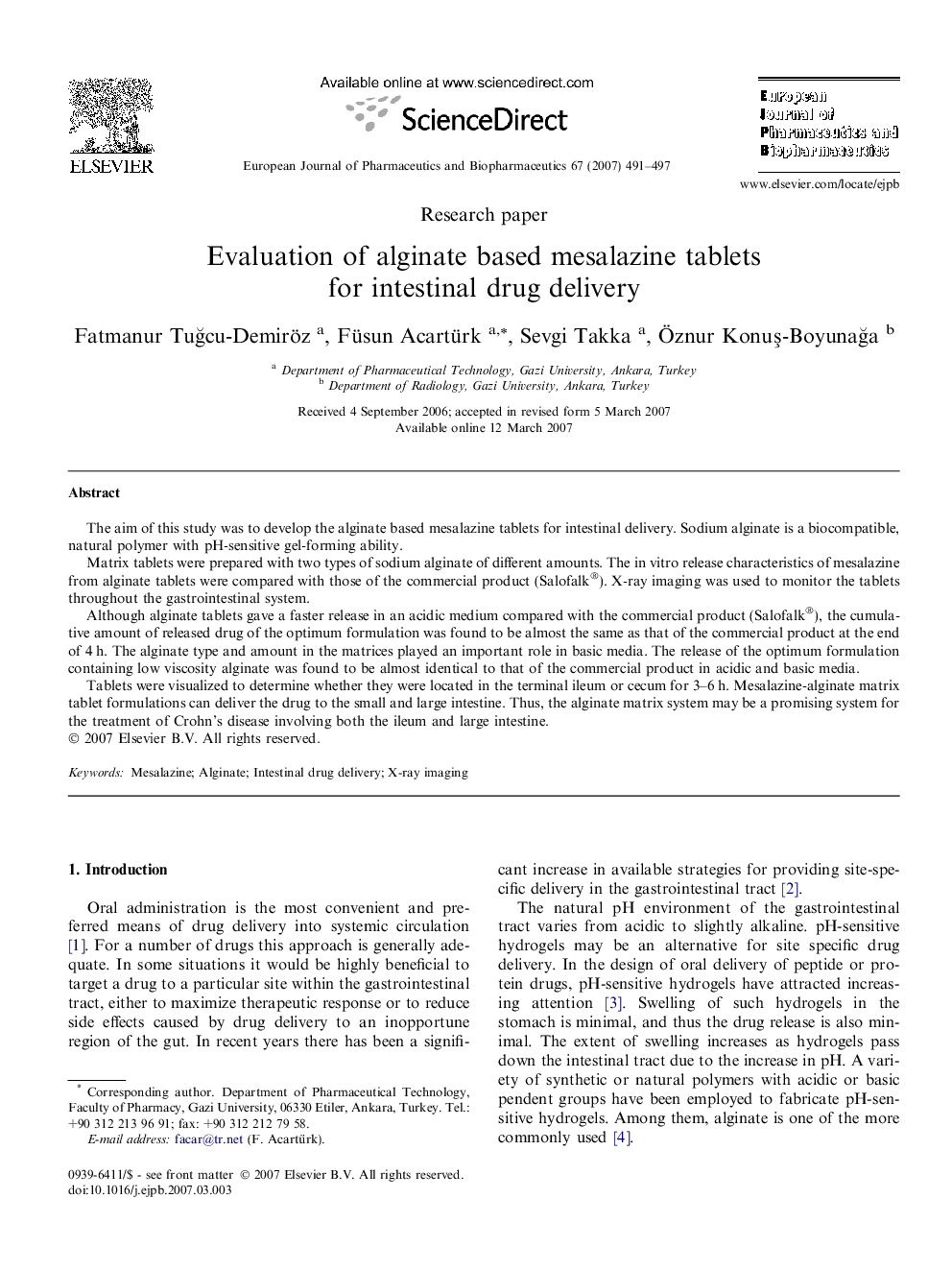| Article ID | Journal | Published Year | Pages | File Type |
|---|---|---|---|---|
| 2084837 | European Journal of Pharmaceutics and Biopharmaceutics | 2007 | 7 Pages |
The aim of this study was to develop the alginate based mesalazine tablets for intestinal delivery. Sodium alginate is a biocompatible, natural polymer with pH-sensitive gel-forming ability.Matrix tablets were prepared with two types of sodium alginate of different amounts. The in vitro release characteristics of mesalazine from alginate tablets were compared with those of the commercial product (Salofalk®). X-ray imaging was used to monitor the tablets throughout the gastrointestinal system.Although alginate tablets gave a faster release in an acidic medium compared with the commercial product (Salofalk®), the cumulative amount of released drug of the optimum formulation was found to be almost the same as that of the commercial product at the end of 4 h. The alginate type and amount in the matrices played an important role in basic media. The release of the optimum formulation containing low viscosity alginate was found to be almost identical to that of the commercial product in acidic and basic media.Tablets were visualized to determine whether they were located in the terminal ileum or cecum for 3–6 h. Mesalazine-alginate matrix tablet formulations can deliver the drug to the small and large intestine. Thus, the alginate matrix system may be a promising system for the treatment of Crohn’s disease involving both the ileum and large intestine.
